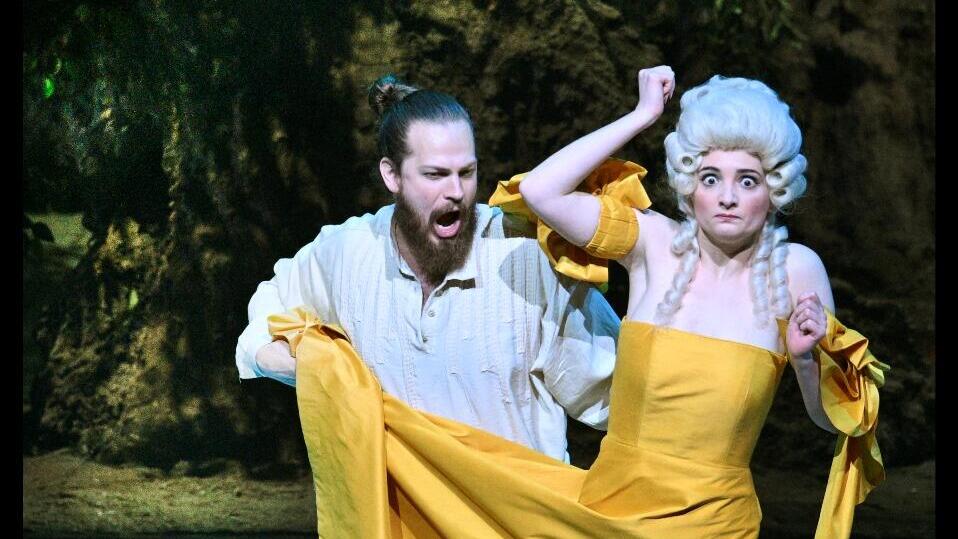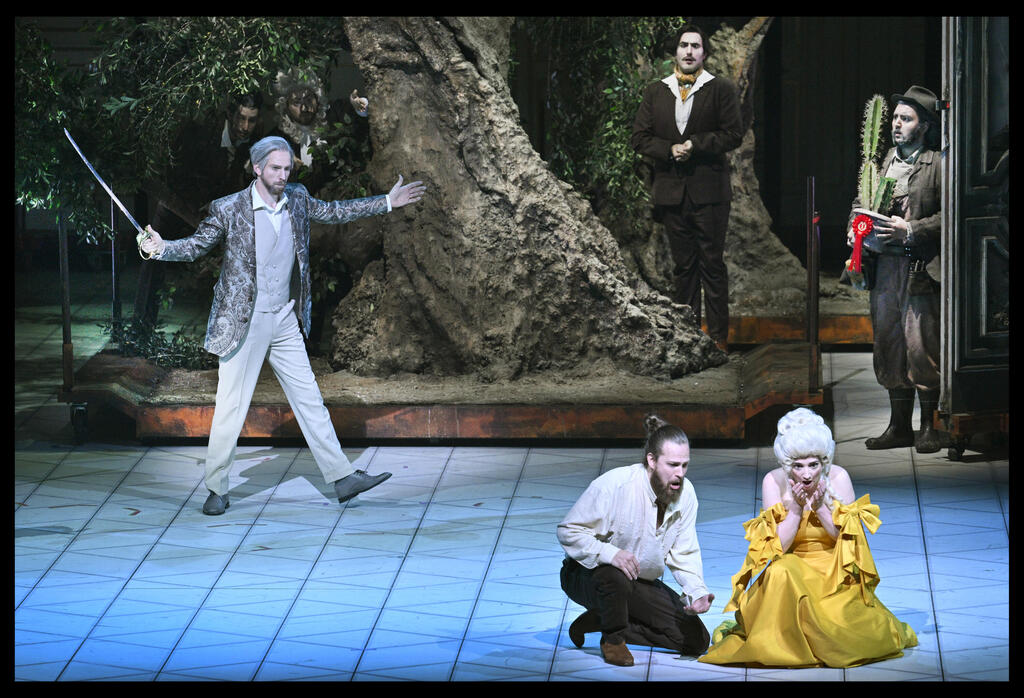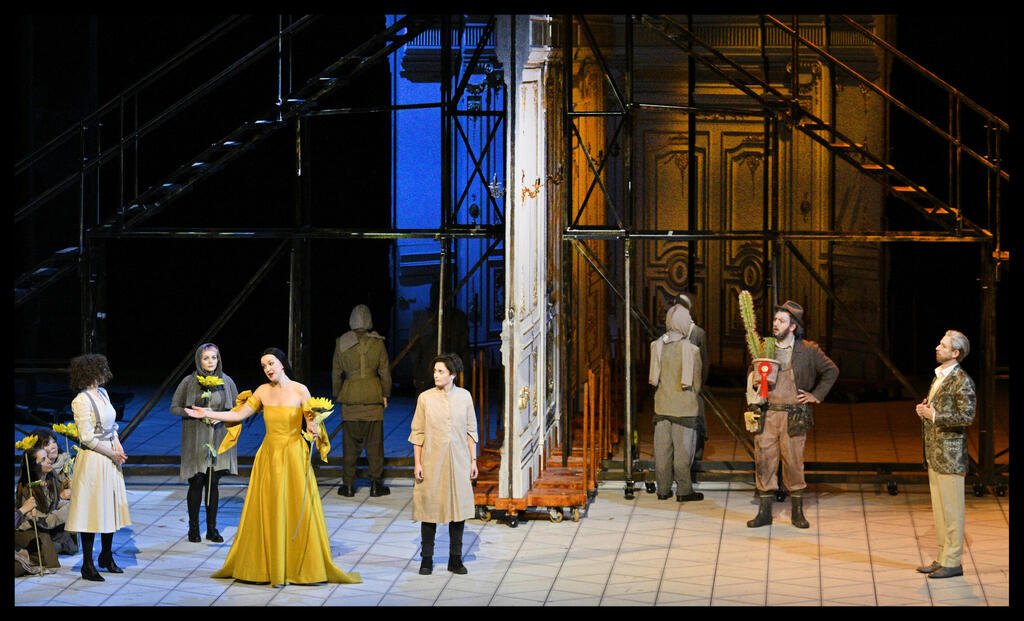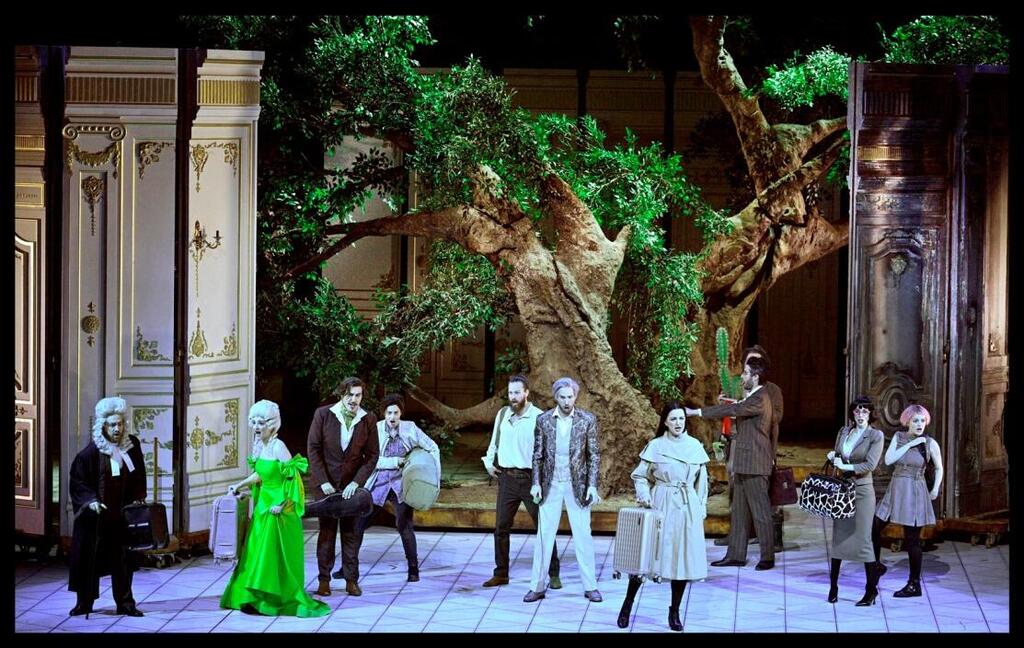Getting your Trinity Audio player ready...
The Israeli Opera recently concluded the first two of its four Italian opera productions scheduled for the current season, with this year’s only opera buffa: The Marriage of Figaro, the hugely popular work by the incomparable Wolfgang Amadeus Mozart. It was the second opera by Mozart to be performed in Tel Aviv this season, following last November’s production of The Magic Flute.
The production marked the return to Israel of renowned English opera director David Pountney, although his staging of the set and costume design – the former with its repeated use of steep ladders, sometimes leading nowhere, and the latter’s slightly more contemporary interpretation of traditional period costuming – was thus not without controversy. Great Britain’s Leslie Travers designed the set, in his first work for the Israeli Opera, while set designer Russian-Israeli Ula Shevtov, a veteran of Tel Aviv theatrical and operatic productions, was in charge of the costumes.
Where the direction did shine, however, was in the comic acting of two of the Israeli performers who were not necessarily in the lead roles. Israeli tenor Eitan Drori, fresh off his role as Beppe in Pagliacci, was absolutely hilarious as the effeminate Don Basilio, even though his singing parts were minimal.
The other artist whose antics drew laughter was Israeli bass Pnini Leon Grubner, in the role of Antonio, the drunk gardener who was always carrying a potted cactus. Grubner had been absent from the Tel Aviv stage in recent years, honing his considerable skills while studying and performing in London and New York; it is to be hoped that his return to our shores means that we will be hearing his rich basso voice with the Israeli Opera on a more regular basis.
Of course, the major roles were also carried off without a hitch, starting with American bass-baritone Cody Quattlebaum in the lead role of Figaro – in his Israeli debut – alternating with British baritone Ross Ramgobin, in only his second appearance with the Israeli Opera. Figaro’s love interest and betrothed, Susanna, was sung beautifully by Israeli soprano Shira Patchornik, alternating in the role with fellow Israeli soprano Daniela Skorka.
Israeli baritone Oded Reich, an Israeli Opera favorite (who also delighted with occasional acting flourishes) was flawless in the key role of Count Almaviva, as was Russian-Israeli soprano Alla Vassilevitsky as his forlorn wife, Countess Almaviva. Reich alternated in the role with American baritone Theo Hoffman, another sporadic visitor to Tel Aviv, while familiar Israeli soprano Tal Bergman alternated with her colleague as the countess.
Also of note was the breeches role of Cherubino, the count’s page who is quite the ladies’ man, in spite of being portrayed by women – in this production by Israeli mezzo sopranos Anat Czarny and Tal Ganor, both Israeli Opera stalwarts.
The conductor throughout the run was Italian maestro Michele Gamba, who also played the harpsichord with the Opera Orchestra (The Israel Symphony Orchestra Rishon Lezion) when he was not wielding the baton at the podium. Gamba flew in as soon as he had recovered from Covid, an unfortunately timed illness which delayed the premiere of this production, adding to the scheduling confusion of a season already thrown out of whack earlier this year by Omicron.
The Israeli Opera Chorus, under the direction of Chorus Master Assaf Benraf, performed the few choral pieces, in an opera happily known more for its variety of multi-voice arias, ranging from duets and trios to the occasional quartet, quintet and even sextet.
Barring any more virus complications, the next production of the Israeli Opera is Alcina, by George Friedrich Handel. This brand-new production, of a less frequently performed opera from the high baroque era, is scheduled to have a very brief run: only five performances, spread out over the weeks between May 16-30.
The Israeli Opera. 19 Shaul HaMelekh Blvd., Tel Aviv. Tel. (03) 692-7777.
First published: 08:15, 04.25.22





